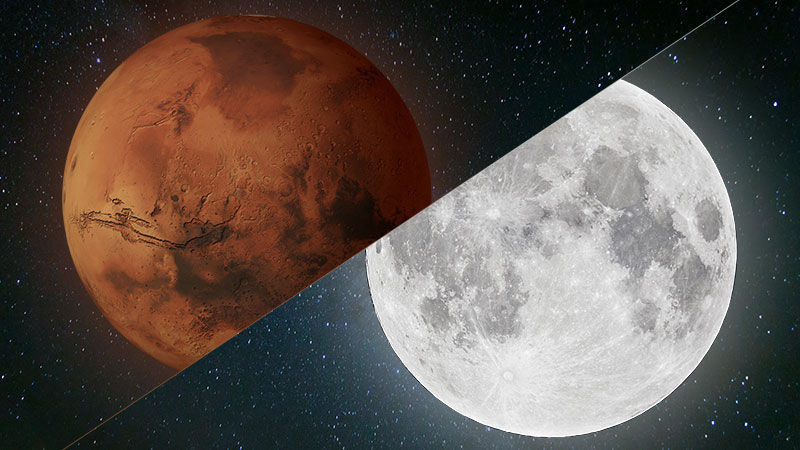House legislators want to hand NASA’s human spaceflight program over to Boeing

Enlarge / Mars or the Moon? It's a debate that has bedeviled NASA for decades. (credit: Aurich Lawson / Getty Images)
On Friday evening, a US House of Representatives committee released H.R. 5666, an authorization act for NASA. Such bills are not required for an agency to function, and they do not directly provide funding-that comes from the appropriations committees in the House and Senate. Authorization bills provide a "sense" of Congress, however and indicate what legislators will be willing to fund in the coming years.
The big-picture takeaway from the bipartisan legislation is that it rejects the Artemis Program put forth by the Trump White House, which established the Moon as a cornerstone of human exploration for the next decade or two and as a place for NASA astronauts to learn the skills needed to expand toward Mars in the late 2030s and 2040s. Instead, the House advocates for a "flags-and-footprints" strategy whereby astronauts make a few short visits to the Moon beginning in 2028 and then depart for a Mars orbit mission by 2033.
Space policyWhatever one might think about NASA's Artemis Program to land humans on the Moon by 2024, it attempted to learn from decades of space policy failure. Artemis set a near-term target, 2024, for a human return to the Moon that provided some urgency for NASA to get moving. It also sought to develop a "sustainable" path with meaningful activities on the surface of the Moon, including polar landings, efforts to tap lunar resources (the House bill specifically prohibits this), and establishment of a base.
Read 13 remaining paragraphs | Comments